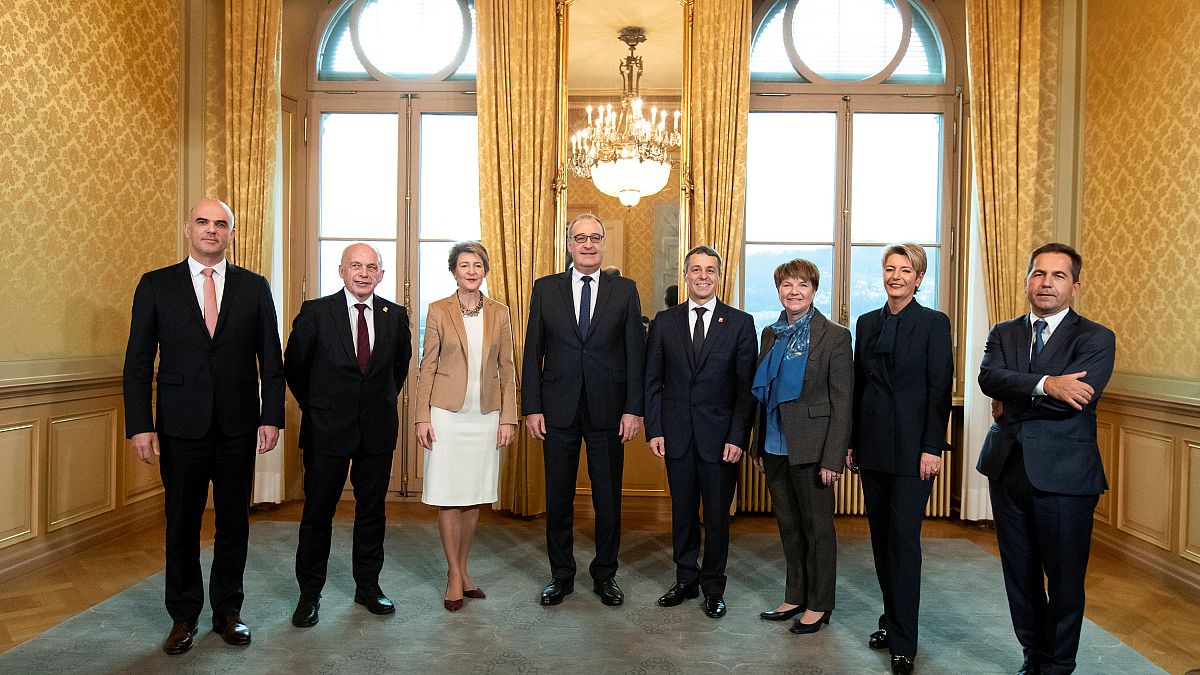The EU has piled on pressure for a treaty that would see Switzerland automatically adopt some EU laws.
Switzerland's Federal Council defied the European Union on Friday, announcing that it will not approve a new "institutional framework" with the bloc until a public consultation has been conducted.
The cabinet did note, however, that the draft treaty with the bloc, which took four years to negotiate, was in the interest of the country, but said further consultation was needed and that it would revisit the issue in spring 2019.
The vote by the seven-member Federal Council came amid pressure from the EU, which threatened to not renew a financial agreement by which it recognises Swiss stock exchanges when it expires at the end of the year unless Swiss authorities backed the deal.
The bloc, spurred by Brexit, is keen to amend its relationship with non-members of "third party" countries.
Trading volumes on Swiss stock exchanges could plunge by 70% to 80% should the EU refuse to recognise Swiss exchange rules as equivalent to EU norms.
120 bilateral deals
Currently, the relationship between the 28-country bloc and the small landlocked alpine country is governed by more than 120 bilateral agreements ratified since a first free trade agreement was struck in 1972.
The agreements — ranging from free movement of persons, public procurement, agriculture, air and land transport to deals on taxation, savings and combating fraud — also see Switzerland participate in the single market and the Schengen area.
Some 20 joint committees work on the implementation of these deals, which oblige Switzerland to take over EU legislation in the covered sectors. The country also pays a financial contribution to access the single market — since 2007, Switzerland has paid CHF 1.3 billion (€1.15 billion).
The EU now is Switzerland's main trading partner, whereas Switzerland is the EU's third trading partner, after the US and China. But for the past 10 years, the EU has been pushing for a new treaty that would encompass all these agreements and provide a more effective platform to resolve disputes.
Brexit to blame?
Talks over the treaty broke down over the summer with Swiss unions rejecting proposals by the EU, which they say would hurt pay for Swiss-based workers and undercut local working conditions.
The EU has also flagged that it does not allow the kind of unrestricted state guarantee from which Swiss cantonal banks benefit as it views them as unfair advantages over competitors.
Furthermore, Swiss Finance Minister Ueli Maurer had also warned that the treaty would endanger the country's famed neutrality.
A Bern insider had also told the Financial Times that the Swiss Cabinet could ask for a consultation period or protest that the UK's divorce from the bloc is creating too much uncertainty over the EU's future relationship with third countries.
"They could justifiably say that this is not the moment to push this through," the source told the FT.
Furthermore Swiss voters, who recently rejected a proposal to give Swiss law precedence over international law — which would have badly damaged the relationship with the EU — may soon have to vote on whether to put an end to free movement.
The motion was brought forward by the anti-immigration Swiss People's Party, the largest in parliament, which gathered the required number of signatures to trigger a referendum. No date has yet been set but a "Yes" vote could all but kill the treaty as it would cross EU red lines — freedom of movement is one of the bloc's cornerstones.
'Switzerland meets all the conditions'
Switzerland had already hit back at the EU's threat to not recognise Swiss stock exchanges as equivalent to the bloc's norms by introducing new measures that could prevent foreign trading venues from trading Swiss shares.
"The Federal Council continues to believe that Switzerland meets all the conditions for unrestricted recognition by the EU of the equivalence of Swiss stock market regulation," the Federal Council said in a statement last Friday.
"The Federal Council's aim and the best solution for all affected market players in Switzerland and abroad remains a swift and unlimited extension of stock market equivalence," it added.
Before any treaty can be ratified, any agreement would first have to be approved by Swiss voters in a referendum.
